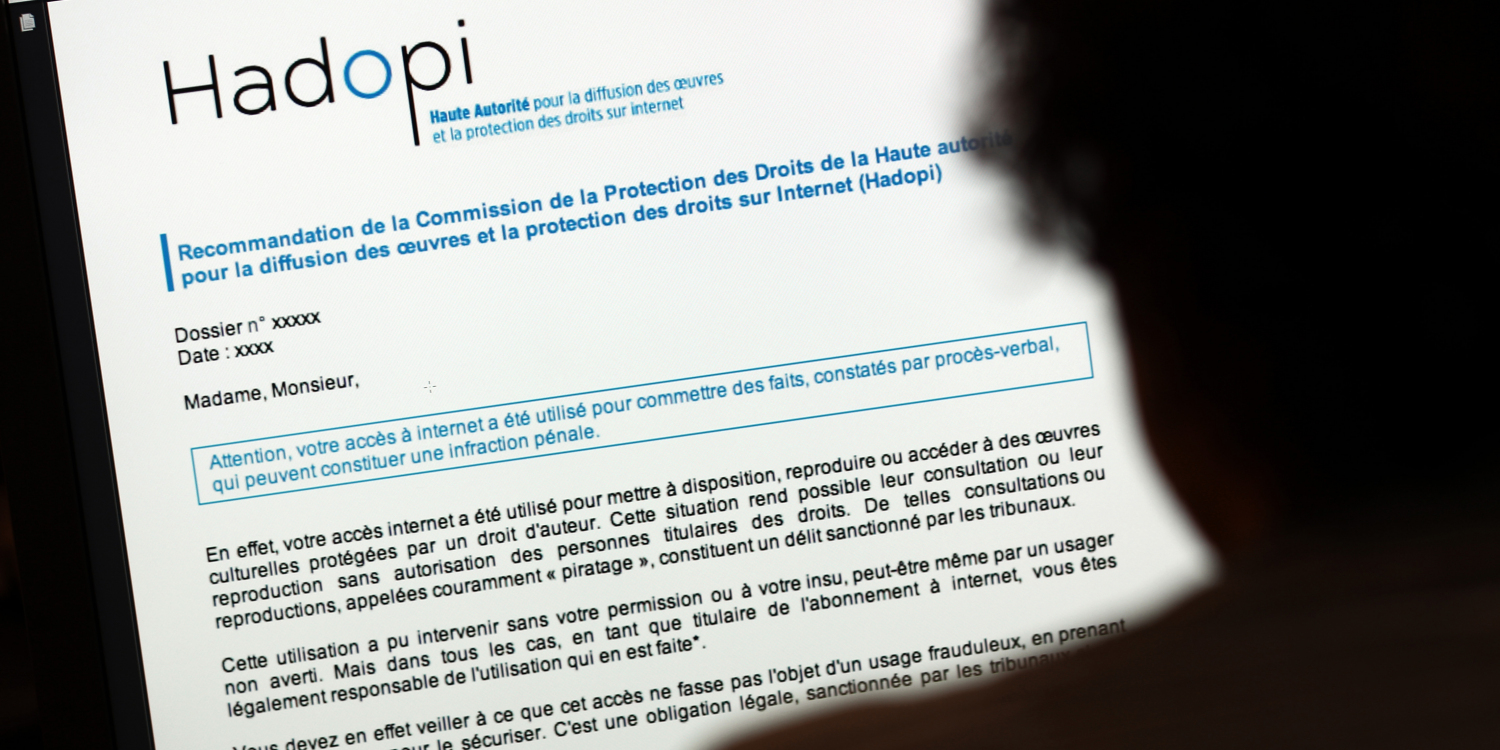Have you ever received a letter from Hadopi? The High Authority for the dissemination of works and the protection of rights on the Internet responsible for monitoring respect for copyright on the Internet has published its report for the year 2019. As NextInpact notes, the committed budget, more than 82 million euros is absolutely not compensated by the fines imposed: 87,000 euros since its creation eleven years ago.
In 70% of cases, no reiteration of the facts is noted after a first warning
These figures do not worry the authority, which emphasizes conversely that "it is nearly 13 million warnings that were sent to Internet users who disregarded copyright. In 70% of cases, no repetition of the facts is noted after a first warning, which denotes a hardly contestable effectiveness of the procedure ".
The Authority is therefore pleased to have mainly prevented recidivism in the case of illegal downloads on peer-to-peer networks, which are the only ones that the authority can sanction. This therefore excludes streaming, direct downloading and more recently, live streaming, while some sites using these practices are considered "manifestly infringing".
A reorientation towards a legal offer
The other reason for satisfaction highlighted in the report is the observation by Hadopi of a change in behavior after a warning "50% of people made aware of the graduated response declare that they have turned to a legal offer". The proliferation of legal streaming services such as Netflix or Amazon has obviously contributed to these changes in behavior.
Since its birth in 2009, Hadopi has used the graduated response procedure. After identification of a practice contrary to copyright by the beneficiaries and referral to Hadopi, the authority sends a first recommendation by email "to the holder of an internet subscription whose access was used to commit acts of counterfeiting ". If there is no reiteration within six months, the procedure is abandoned. If this is the case, a second recommendation is sent by email, together with a letter delivered against signature. If a new offense is found, we then speak of "gross negligence", liable to criminal prosecution and a fine of up to 1,500 euros, imposed by the police court. A rare case.

